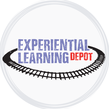|
Experiential learning resources for the innovative educator
If you are in secondary education, implementing a senior project for high school students has likely crossed your mind. You've mulled over the costs and benefits of senior projects, the time commitment, how to develop a senior project program, what your senior project would look like, and more.
But if you're reading this, you've likely not taken the plunge but are looking for inspiration. This is the post for you. Why are senior projects important?
This post will answer that question and is the starting off point to my blog mini-series on senior projects. That blog series will go over the benefits of senior projects (starting here), ideas for senior projects, and how to implement and facilitate a comprehensive senior experience.
What are senior projects? Let's get that out of the way before moving on. A senior project is a comprehensive project specific to high school seniors that is typically completed prior to or as a requirement for graduation. The goals or details vary among schools and teachers. Some educators use senior projects as a way to demonstrate academic knowledge. I treat a senior project more as a senior experience with the goal of being college and career ready. Their senior experience is a combination of experiential activities that personalize learning and guide students through college and career exploration, 21st-century skill-building, resume building, and more.
Why are senior projects important, then? To prepare kids for life. My senior projects do not focus on specific content covered over the course of their high school careers. They focus on content and learning experiences that are relevant and specific to each unique individuals personal goals and future aspirations.
So my "why" for senior projects, the benefits that I list below, will reflect senior projects that emphasize college and career readiness, as mine do. My students' senior experience is a year-long undertaking that includes building and managing a senior year personal learning plan, exploring career options through student-directed project based learning, building a 21st-century skills portfolio, designing and executing a community action project, and putting together a professional career portfolio. My senior experience incorporates experiential learning activities, because that is what experiential learning is, really. It is hands-on, personalized, self-directed, and relevant learning. For some insight into what those activities look like and to use some samples, access my free experiential learning activities resource library. Why Are Senior Projects for High School Students Important?
Senior projects are important for...
1. College Career Readiness: Senior projects of the college career ready variety get students thinking about and exploring careers of interest. This is beneficial for a variety of reasons, one of which is to save students time and money. Often times the secondary to postsecondary transition looks like this: 1) College Bound: Students get the grades to get into their college of choice and then start that postsecondary program with little direction or clarity about the future. That was my path. I ended up changing my major 4 times and needed a fifth year to finish my degree, costing me a lot of time and money. 2) Not College Bound: College isn't for everyone, and that's okay! But if those students graduate without any guidance, direction, or plans for next steps, they get stuck. Ideally those students would spend six months getting certified in a trade or work their way up the career ladder in their current job. My students that do not choose a four-year college program do this because their senior projects help give them some insight into what they want next and the steps that they need to take to get there. My four-year college bound students are able to enter their postsecondary program with direction. Whether you're college bound or not, having a career plan, at least a loose one, is important on so many levels. Exploring careers before graduation helps guide students through the transition from high school to the 21st-century workplace. 2) Post-secondary Confidence: This reason for having students do senior projects bleeds into the first one. Career exploration is important for postsecondary preparedness, and being prepared for the next chapter brings confidence and comfort in taking that leap. Graduation itself is exciting, but what comes next can be scary. This time of life is filled with uncertainty. Having a plan in place relieves some of that fear and uncertainty moving forward. Note to seniors and career counselors: Check out Immerse Education for the opportunity to submit an essay to receive a scholarship to one of their summer programs in London, Oxford, or Cambridge. 3) 21st-Century Skills Competence: Employers look for employees that understand the line of work that they're in. But they also look at character, work ethic, creativity, collaboration and communication skills, and other 21st-century skills. Teachers, for example, know how to teach. They know their craft. But in 2020 Covid changed everything. Teachers could no longer go off of what they've done before. Teachers had to be adaptable, creative, and skilled in problem-solving. These are skills that can be developed and nurtured. My senior experience helps 21st-century learners build these essential skills for the 21st-century workplace. This example is not unique to teachers, by the way. Most employers are looking for more than content knowledge. 4) Networking: Networking is one of those 21st-century skills talked about in #3, but I want to give this skill some additional attention. My students' senior experiences are highly experiential, community-based, and collaborative. Learning experiences that promote community relationships help students build an important network of future partners, mentors, and/or collaborators. I wish that I had exited high school with a little black book of community members that I could rely on for resources, references, and/or widening my network. Senior projects help students do this. 5) Gaining Perspective: My version of a senior experience puts students in a position to see the world from another angle. Students explore what is out there beyond high school. The career exploration phase of my senior project helps students see a wider scope of opportunity. They may discover careers in the process that they weren't aware of prior to this experience. This phase of the senior experience also helps them look at trends and how the world is evolving. They become aware that their future career might not even exist yet, which encourages creativity and adaptability (some of those 21st-century skills already mentioned). 6) Gaining Career Experience: An important part of any senior project, in my opinion, is to help students gain career experience and work samples through experiential learning. My senior experience includes a professional career portfolio that students build over the course of the year. This portfolio is nothing without experiences to showcase. A senior project that is college and career based encourages and guides students through learning activities that help them gain experience in their field of interest. Having these experiences is important for giving students a competitive edge, but it also helps students refine their interests. They might think they're interested in working in the medical field, for example. They coordinate a volunteer experience as part of their senior project and discover in this experience that they are actually not passionate about medicine at all. This will save them time, energy, and possible future anguish. Any work or career experience that students gain from their senior project can be added to a career portfolio that students can carry with them beyond high school. 7) Progress: College and career readiness is on trend, so hop on the bandwagon! States across the U.S. are adding college and career readiness standards to their graduation requirements. Colleges are incorporating experiential learning activities like what my senior experience offers to their curriculum to help their college grads better prepare for the 21st century workplace. Give your students a head start.
Don't ignore college and career ready strategies, such as senior projects that are career ready focused. Our high school students deserve and require guidance through the transition from high school to the next chapter of adulthood.
Help them feel prepared for that next step, confident in moving forward, and experienced in their field of interest with a senior project. It's important. Stay-tuned for next week's post on what my senior experience looks like and how to implement it in your classroom or homeschool this fall. Follow Experiential Learning Depot on Pinterest, Facebook, Youtube, and Instagram for more on experiential education, and check out my TpT store for experiential learning resources. Did you know there is an experiential learning Facebook group? Check that out - Experiential Learning Community for K12 Teachers - and join in the discussion about all things experiential learning. Observe. Question. Explore. Share.
0 Comments
Your comment will be posted after it is approved.
Leave a Reply. |
Blog IntentTo provide innovative educational resources for educators, parents, and students, that go beyond lecture and worksheets. AuthorSara Segar, experiential life-science educator and advisor, curriculum writer, and mother of two. Categories
All
|






 RSS Feed
RSS Feed